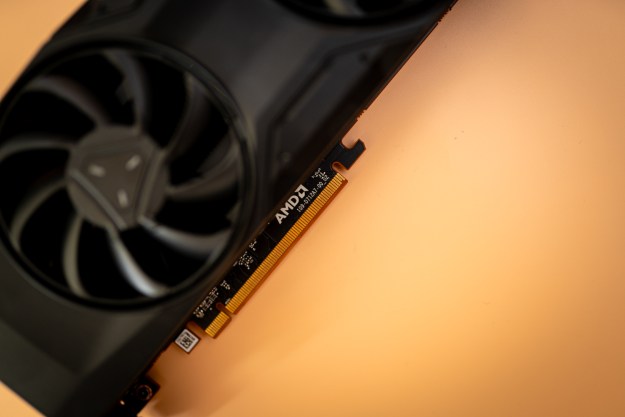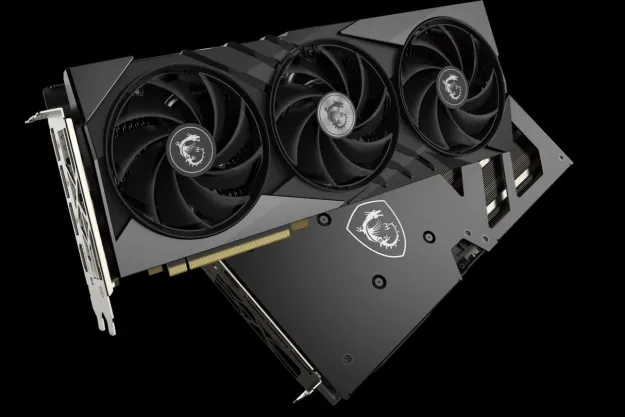Gamers who feel the need to make their high-performance rigs the hottest systems in town have a new piece of technology to acquire: graphics developer Nvidia is finally shipping its GeForce 9800 GX2 to retailers, with promises to redefine the high end of the graphics market with blistering response rates and extreme HD gaming.
Although its specs haven’t been a secret, the GeForce 9800 GX2 features two GPU systems with 128 processor cores and 512 MB of dedicated video RAM apiece. The card’s memory clock runs at an even 1 GHz while the shader clock runs at 1.5 GHz, and the card claims to be able to puts 128 GB/sec through its memory bus. The card is capable of supported 2,560 by 1,600 pixel displays, and supports HDCP over both HDMI and DVI outputs, The system also handles H.264, VC-1, WMV and MPEG-2 decoding on its own, freeing up a computer’s CPU for other tasks (like trash-talking your competition).
The GeForce 9800 GX2 also features Nvidia’s new HybridPower power management technology, designed to cut back on the system’s power consumption and even switch over to integrated graphics controllers on Nvidia-branded motherboards when the system’s full graphic capabilities aren’t needed. However, all full blast, the 9800 GX2 eats more than its fair share of electrons, with a peak power consumption just under 200 watts. In addition to a hefty power supply, gamers will also want a spacious rig: the double-wide cars is about 11 inches long, with a fan on the front, and ports (two DVI, one HDMI) out the back.
Retailers are beginning to offer the GeForce 9800 GX2 at retail prices starting around $600.
Editors' Recommendations
- Nvidia RTX 50-series graphics cards: news, release date, price, and more
- Nvidia just made GeForce Now so much better
- Nvidia just fixed a major issue with its GPUs
- What is ray tracing, and how will it change games?
- Nvidia DLSS 3: explaining the AI-driven gaming tech


